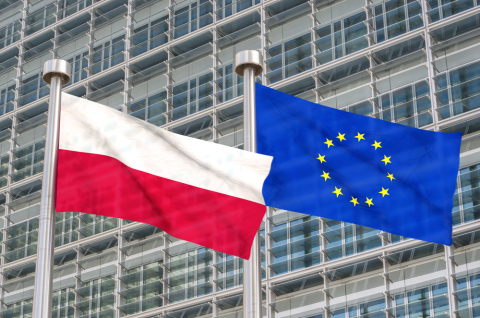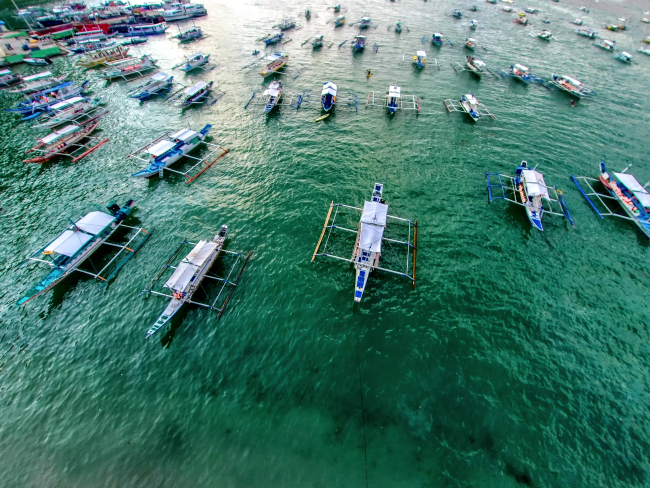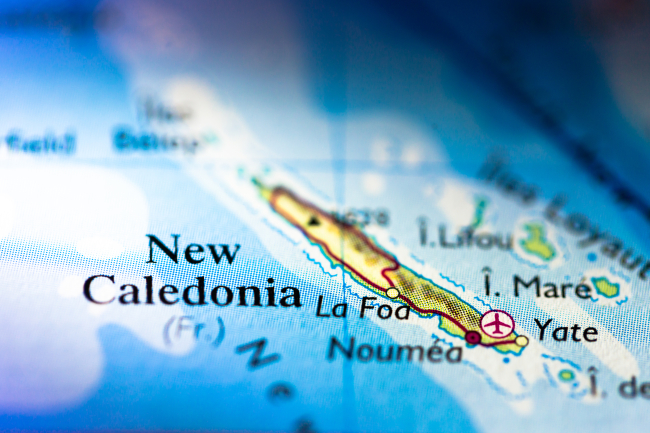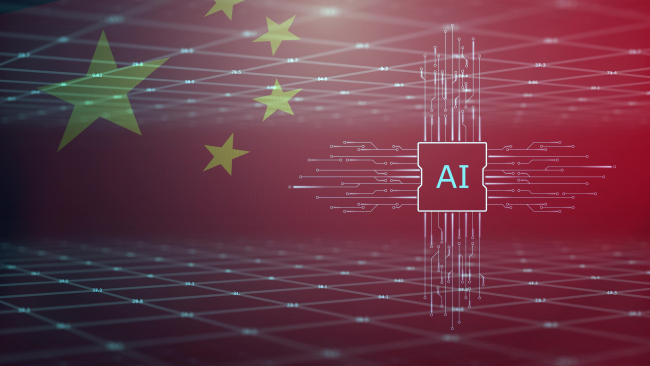Emmanuel Macron: The Preferred Choice for Taipei and Beijing

The second round of the French presidential election on April 24 will decide whether Emmanuel Macron, the incumbent president, or Marine Le Pen, the leader of the far right nationalist party Rassemblement national (national gathering), will become president of the French Republic for the next five years.
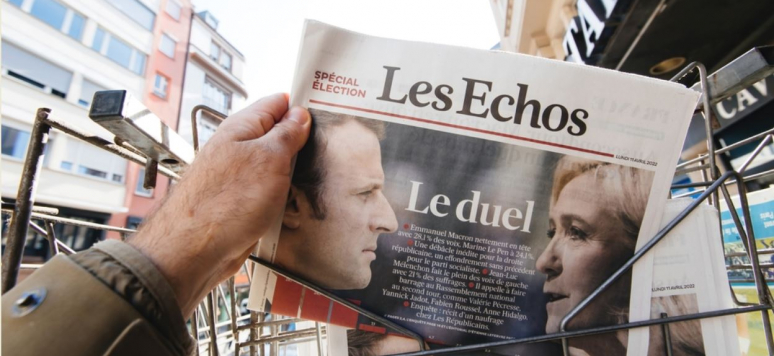
Even though Mr. Macron has won the first round with 27.8% of the votes, Le Pen had her best showing (23.1%) in what is now her third presidential campaign, making it to the final round of the election for the second time.
This final round is therefore a repeat of the duel held in 2017, however with a slightly different context. First, Macron has been facing criticism over his governance (an immoderate use of private consulting firms like McKinsey) as well as his program (retirement at the age of 65). Second, the far right wing is stronger than ever in France. The big question right now is to what extent French voters will once again make a “damming vote” against the far right.
In both cases, what would the victory of one or the other imply for France’s policy toward Taiwan and the People’s Republic of China (PRC)? In a rather strange way, it appears that both Taiwan and the PRC would benefit from the re-election of Emmanuel Macron.
Macron: A lesser evil for Beijing and the best bet for Taipei
From Beijing’s perspective, Macron will most likely keep economic ties and diplomacy afloat with China. Although he is aware of the risk that China represents on the economic and political field, he has already shown that he prefers to preserve the bilateral relationship while supporting, behind the scenes, the EU’s tougher stance on China regarding matters such as the 5G infrastructure, trade and investment, or human rights. Likewise, at home the government has never been too harsh on China, but “at the same time” (Macron’s favorite motto for the past five years) the French Parliament, including many representatives from his own majority, has been taking stronger positions regarding the Uyghur issue, Hong Kong, and Taiwan. Still, Macron’s commitment to globalization and free trade makes him Beijing’s best choice.
From Taipei’s perspective, while abiding by France’s “one China” policy, Macron has nonetheless promoted deepening cooperation with Taiwan. For instance, a new Taipei Representative Office was established in Southern France’s Aix-en-Provence in December 2020. Inter-parliamentary relations between France and Taiwan were also upheld. François de Rugy, former chairman of the National Assembly and a former minister under Macron, is now Member of Parliament and head of the Working group on Taiwan at the National Assembly. In December 2021, he led a delegation of six to Taipei, where he met with Premier Su Tseng-chang. Alain Richard, vice-president of the Senate, member of the Presidential party, La République En Marche, and head of the Senate-Taiwan Exchange and Study Group, also led a delegation to Taipei in October 2021, where he met with President Tsai Ing-wen, among others. This visit triggered a strong reaction in France, because, prior to the trip, the Chinese ambassador to France wrote a letter to Mr. Richard seeking to dissuade him (unsuccessfully) from going to Taipei. Finally, it is worth noting that in 2021, both Chambers of the French Parliament voted, with very large majorities, resolutions to support Taiwan’s representation within UN institutions. That is why Taipei would definitely benefit from another five-year term for Macron.
Le Pen: A leap into the unknown for China and the worst-case scenario for Taiwan
On the other side, Le Pen is much less inclined toward free trade and globalization than her rival. As a nationalist candidate, she promotes protectionism and “economic patriotism” as well as a gradual retreat from EU institutions (she used to advocate for a full “Frexit,” but it is no longer officially in her program). It is unclear, however, to what extent, and how and when she would target bilateral trade and investment with China. In the field of power politics, Mrs. Le Pen claims to fear a “mega alliance” between China and Russia, and that is why she chooses to engage and work with Russia, a “European power,” rather than with China. She has made clear in her program that she is concerned about the predatory behavior of China’s statecraft in France, as well as China’s “imperialism” and “choking strategy” at sea and the threat it represents to France’s territories in the Indo Pacific.
One nuance should be made, nevertheless. If Le Pen wins the election, France’s diplomatic influence within the EU’s foreign policy will be immediately downgraded. This could eventually benefits China, which has an interest in a divided Europe. Mrs. Le Pen has made no secret about her ideological proximity with the freshly re-elected Viktor Orbán, the illiberal Prime Minister of Hungary, and China’s closest EU leader. By bringing new divisions among EU member states and teaming up with Hungary, Le Pen could indirectly push forward Beijing’s agenda in Europe.
Mrs. Le Pen’s rather tough position toward China does not imply a more favorable position on Taiwan, however. Le Pen did not make any statement regarding Taiwan during her campaign, a topic she does not seem to be willing to tackle. However, according to her foreign policy adviser and member of the European Parliament, Hervé Juvin, “Taiwan is China.” In a blog post he wrote on his own website in November 2021, he asserts: “it is worthless to resist China’s overwhelming military superiority and the resolve of its forces.” And as far as the United States and European nations are concerned in the Taiwan Strait dispute: “to seriously harm China would be to seriously harm ourselves.” Therefore, under a Le Pen government, any further cooperation with or support for Taiwan would likely be out of the question.
Altogether, with the caveat of the disruptive effects Marine Le Pen would have in Europe — and the indirect benefits that would result for Beijing — if she is elected, Emmanuel Macron remains the preferred choice for both China and Taiwan.
> The original article is published on the website of the Prospect Foundation.

Available in:
Regions and themes
Share
Related centers and programs
Discover our other research centers and programsFind out more
Discover all our analysesThe Case for Enhanced France-Philippines Maritime Cooperation
France and the Philippines, two Indo-Pacific nations, can capitalize on their shared interests, needs, and expertise in maritime security and governance, ultimately fostering strategic rapprochement.
France’s maritime security cooperation in the Pacific
France plays a significant role in Pacific maritime security, particularly through the active participation of its overseas territories and the contribution of its stationed armed forces to regional cooperation initiatives.
Taiwan’s Rising Space Program: Building Up Industry, Supporting National Security
Taiwan, known for its leadership in semiconductors and information and communications technology (ICT), is now making significant strides in the space industry. While historically modest, Taiwan’s space program has seen a transformation since 2020, driven by President Tsai Ing-wen’s commitment to expanding the country’s space capabilities. Key milestones include the passage of the Space Development Act and the creation of the Taiwan Space Agency (TASA), which has bolstered the resources and visibility of Taiwan’s space ambitions.
AI and Technical Standardization in China and the EU: Diverging priorities and the need for common ground
Given the highly disruptive potential of AI, global cooperation on AI safety and governance is imperative, and yet the deeply transformational potential of AI also ensures that a high level of competition and systemic rivalry is likely unavoidable. How can the EU best manage its complex relationship with China in the field of AI so as to ensure a necessary level of cooperation in spite of competition and rivalry?




